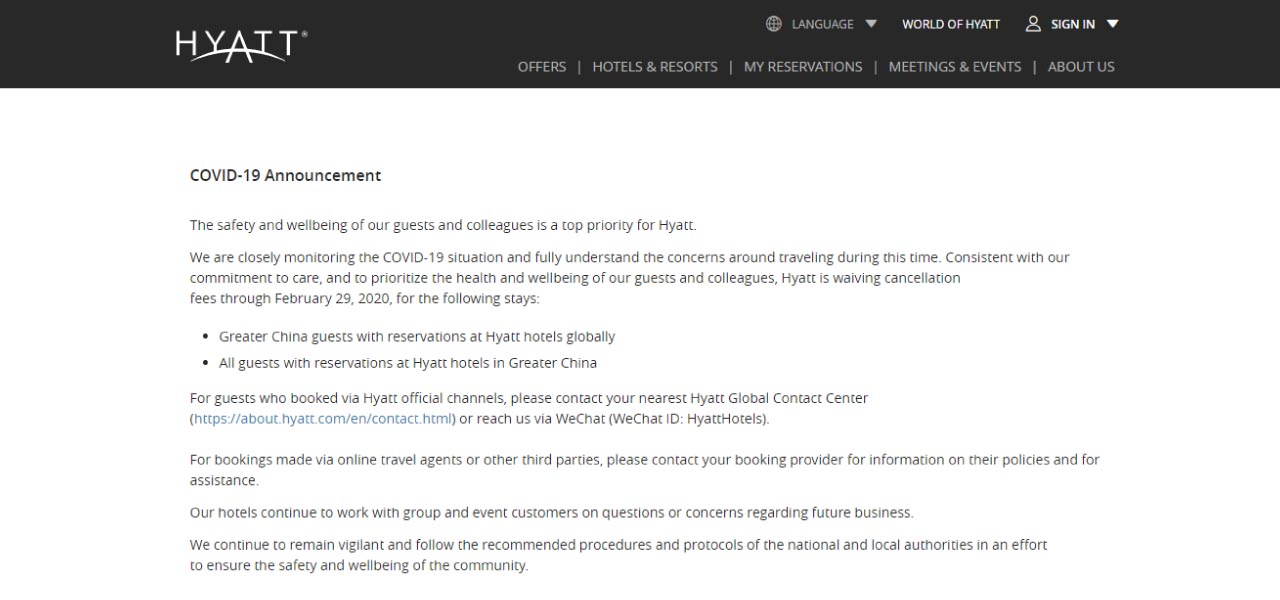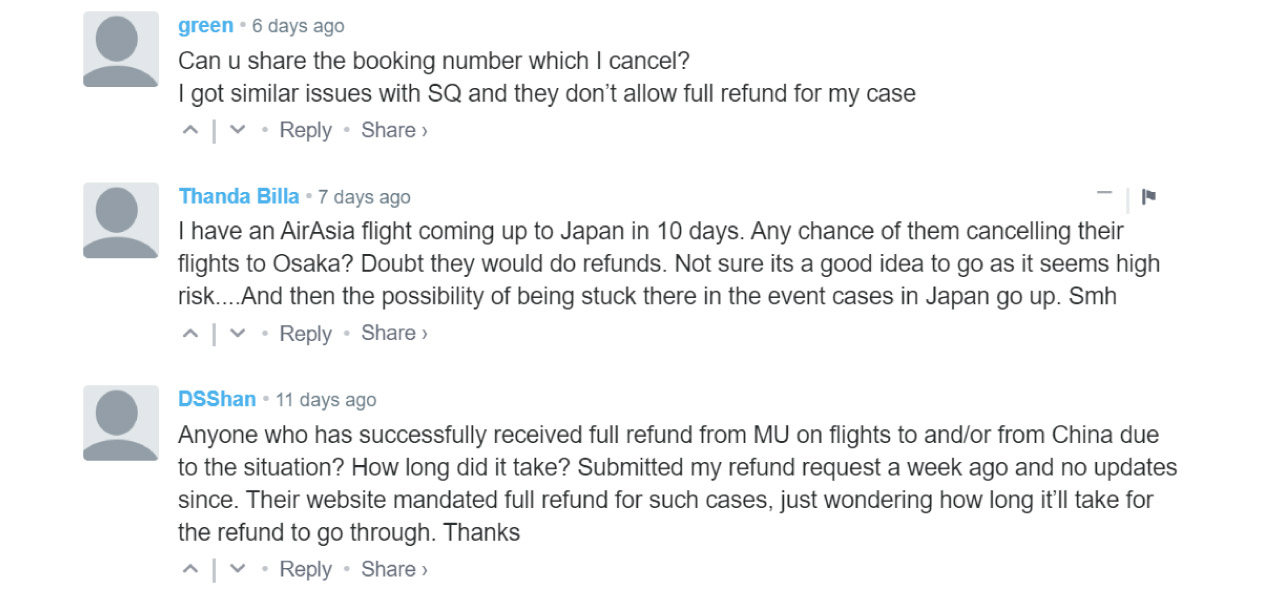From Hubei in China to Honk Kong, Japan, Thailand, and the Philippines, Asian destinations are battling the most ravaging outbreak yet of the Coronavirus. The first case of the Coronavirus was recorded in Wuhan. However, the deadly virus has since spread to dozens of countries in Asia and beyond, causing thousands of casualties and quarantining millions. With more than 60,000 confirmed cases and millions of individuals under quarantine across China, global fears over the epidemic continues to soar, and this has coincided with a dip in trips to Asian destinations.
The economic toll of the coronavirus epidemic has been massive across the Asian tourism industry. Many flight operators, travel agents and hospitality businesses have noted sweeping changes in travelling preferences, with many tourists reconsidering their travel plans to destinations anywhere close to the center of the epidemic. While it’s lately not been business as usual for brands in the tourism space, incorporating safety tips and ensuring potential travellers are well protected are vitally important for businesses looking to neutralize fears caused by the deadly outbreak. Here’s more on ways to build trust, maintain brand loyalty and ensure your business stays afloat in the face of the coronavirus outbreak.

How Businesses Are Responding
Following the World Health Organisation’s (WHO) declaration of the coronavirus outbreak as a public health emergency of global concern, tourism businesses have reacted. Many Asia-bound flights have been cancelled lately, and understandably so, as casualties continue to rise.
While pre-emptive measures need to be put in place to check a possible spread, it is also key for businesses to maintain the trust and confidence of their customers. Thus, decisions as late flight cancellations and poor refund policies may hurt brands long term. While travellers may have changed preferences for trips to mainland china, those looking to travel to other destinations via China are left scrambling for guidance.

Tavel insurance comparison site InsureMyTrip noted a spike in call volume following the outbreak of the coronavirus, with most of these calls from travellers looking for answers bordering on the epidemic. What this means for travel brands, then, is that better handling policies with respect to cancellations and refunds, timely guidance and reliable itinerary tips for travellers planning a trip to within Asia couldn’t be more important. Travellers are still willing to make Asia-bound trips, but will only do so knowing answers to their safety and financial concerns are addressed.
Some brands have successfully managed the uncertainty, and others not so much, as seen in travellers feedback on prevailing policies buy businesses in the tourism space. To drive confidence and stimulate business, a few brands have adopted savvy handling policies.
Good Handling Policies
As businesses continue to record substantial lows in patronage, taking swift measures and providing a safe and efficient work environment are strong ways to sustaining brand image.
To this effect, Hyatt, like many other hospitality companies, has revealed its decision to waive cancellation fees for travellers who change their plans on bookings to Greater China Hyatt hotel via Hyatt official channel. This makes it easy for travellers to choose Hyatt locations knowing they won’t have to worry about refund fees should they change their travelling decisions during the outbreak. The brand also intends to sustain partnership with travel groups and customers, providing answers to any concerns as they make future travelling plans.
By keeping potential travellers aware of latest guidelines and safety measures advised by the local and international health authorities, Hyatt’s strategies put customer loyalty at the forefront, which is vitally important while the outbreak lasts.

Hyatt’s official announcement
Wyndham Hotels and Resorts is also adopting a similar policy for bookings made between January 21st and February 29th across its properties in China. Noting this move, “We expect this to continue through at least the end of March,” said Michele Allen, the company’s Chief Financial Officer.

Notice on Wyndham’s site
Cancellation fees have also been waived by Marriot International, together with “closely monitoring the Centers for Disease Control and Prevention and World Health Organization’s statements regarding the novel coronavirus (2019-nCoV) cases and following the guidelines from these agencies and the local health departments,” according to a company statement. Marriot International’s free cancellation fees apply to bookings made for stays in its properties in Mainland China, Macau SAR, Hong Kong SAR and Taiwan until Februrary 29, 2020.

Like companies in the hospitality space, airline operators have been severely hit with cancellations and rebookings following the coronavirus outbreak. Policy change for flight bookings have been implemented by many airline operators, in what has been a good move to handle the outbreak. Air China announced free refunds for eligible tickets through their validity period. In a similar move, China Airlines offered full refund for unused tickets and payments for pre-paid excess baggage and chargeable seats.
Bad Handling Policies
-
Slow Response
Multiple refund requests might slow response times – as has been reported by some potential travellers who cancelled their Asia-bound flights. Maggie Yu, a Washington based software engineer planned travelling to Thailand, Singapore and Vietnam. However, after frantically calling airlines hoping to get refunds, rebook her trip and understand existing travel bans, she opted to cancel. “we spent so much time on the phone on hold, trying to get help,” she said. This could leave an undesired impression and blur the prospects of future business.
-
Few qualifying tickets
Qualifying tickets for refund also differ depending on the airline operator. While many airline operators have gone the free refund route, others have not. Airlines with a wider range of tickets qualifying for a refund obviously make a better choice for travellers planning their future trips.

Tips for businesses
1. Free cancellations and refunds
While cancellations and refunds hurt businesses, travellers are also keen to ensure they don’t lose funds for reasons beyond their control. One way to drive consumer loyalty and confidence is by letting them know their funds are safe, and what better way to get started than offering a full refund while the outbreak lasts.
2. Swift, efficient communication
As with any major outbreak, keeping customers aware of latest developments and safety measures to protect them is key. Travellers want to know that they are of primal importance and their safety is at the forefront of any brand they patronise. With fast-changing updates on bans to countries and uncertainty as to who qualifies for quarantine following a short stop over at a hot spot, businesses need to maximise communication channels. Thus, hotels and airline operators, for instance, can build trust with potential travellers planning future trips by leveraging their social media accounts to full use. Prompt replies to queries will go a long way while the outbreak lasts and could solidify relationship for future business following the outbreak.

3. A safer environment
At a time when safety is key and preventive measures are vitally important, businesses can leverage a digital working environment to protect employees and keep business going. This can be especially handy for service-based businesses where physical contact with customers is not mandatory. Apart from ensuring employee safety and minimizing risk, travellers will also have the confidence of being attended to at all touchpoints of their travelling experience with a digital-friendly brand. Showing customers you care can go a long way in creating long lasting business relationships. You can ease their tense by promising a good environmental hygiene and giving more personal hygiene tips.
Bottom line
As the coronavirus outbreaks bites hard across China and Asia, it is crucial for brands to provide the right ambience for business without compromising safety. Customers don’t need to flee from your brand as the virus spreads. And so poor cancellation polices, panicky decisions and inefficient communication mechanisms can hurt brands in the short and long term. Hence the need for a positive, strategic response while the coronavirus outbreak lasts.
Regardless of your niche in the tourism industry, a good handling strategy starts with monitoring the outbreak, keeping travellers aware of their options and communicating developments in real time. Keeping tabs on information provided by local and international health organizations will also be fundamental.
On the whole, by putting the safety of customers at the forefront, ensuring their finances are safe with prompt and friendly refund policies, and providing the right safety support, businesses can better position their brand to Asia-bound tourists still willing to make the trip to Asia. The ripple effect is a strong brand image that increases customer loyalty and brings businesses closer to their target market during and beyond the coronavirus outbreak.



